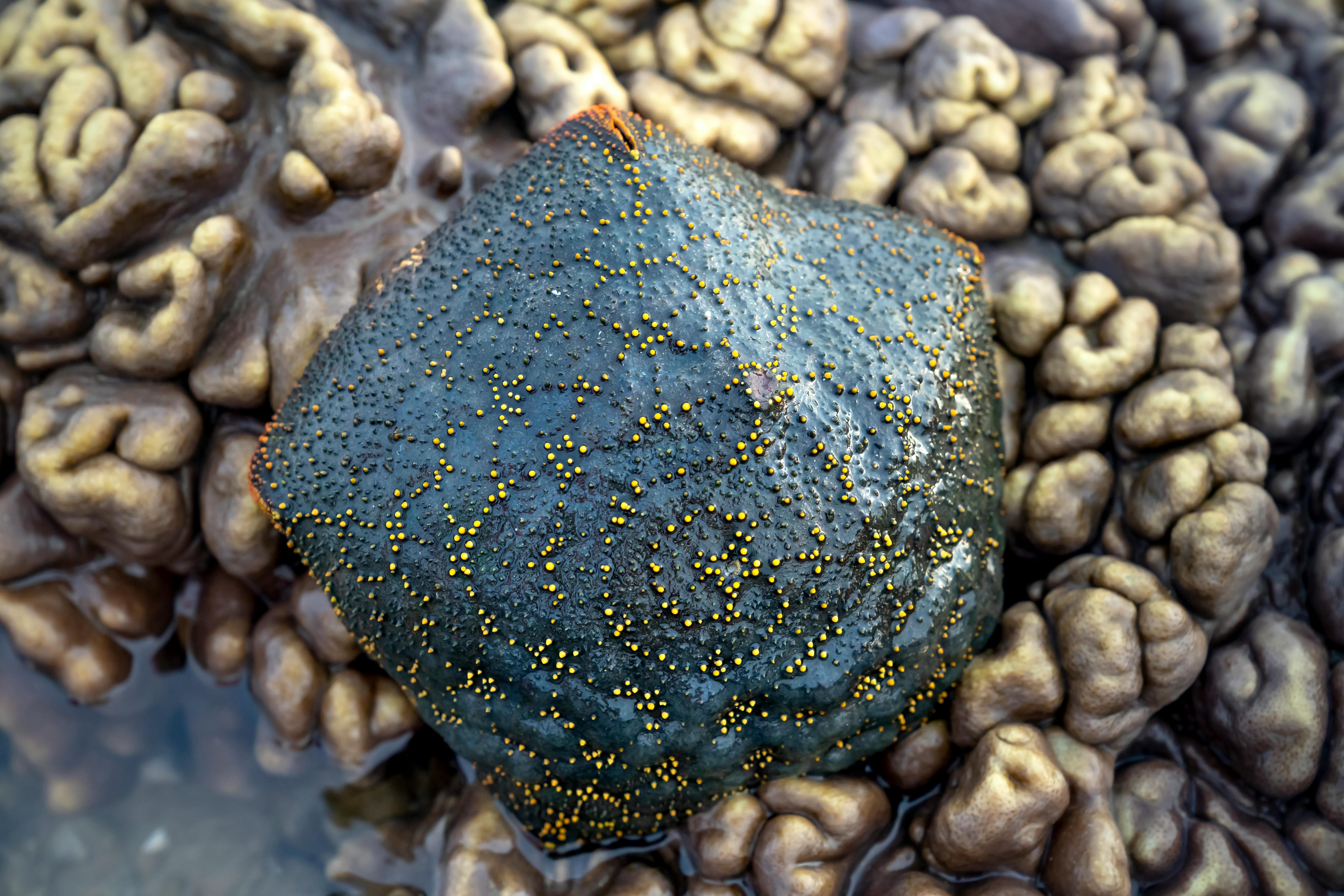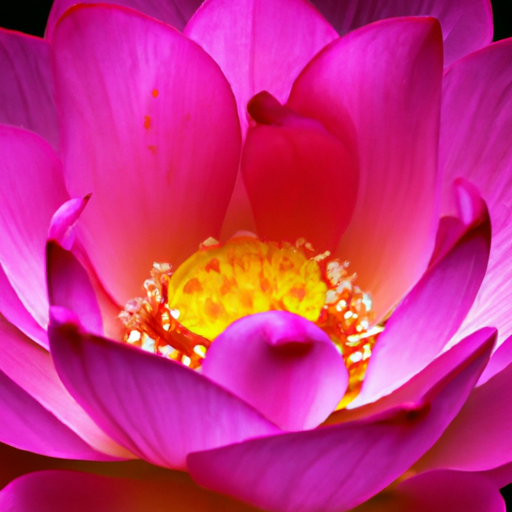Stress has become an unwelcome companion in our day-to-day lives, but fear not, for we have discovered the key to unlocking Ayurveda’s ancient wisdom when it comes to stress relief. On IndianCulture.com, you will embark on a journey of holistic wellness, where natural healing and time-tested remedies from India’s rich tradition of Ayurvedic medicine await you. Bid farewell to stress and say hello to inner tranquility as we delve into the world of Ayurvedic remedies for stress relief.

Understanding Ayurveda
Ayurveda is an ancient Indian system of medicine and holistic wellness that focuses on achieving balance and harmony within the body, mind, and spirit. The principles of Ayurveda are rooted in the belief that each individual is unique and that our well-being is determined by the balance of three fundamental energies, known as doshas – Vata, Pitta, and Kapha. Ayurveda offers a comprehensive approach to stress relief by addressing the underlying causes of stress and providing natural remedies for restoration and rejuvenation.
Principles of Ayurveda
The principles of Ayurveda are based on the understanding that our health and well-being are determined by the balance of the three doshas within our body. Vata represents the energy of movement, Pitta is the energy of digestion and transformation, and Kapha embodies the energy of structure and stability. When these doshas are in balance, we experience optimal health. However, when there is an imbalance in the doshas, it can lead to physical, emotional, and mental imbalances, including stress.
The Doshas
In Ayurveda, the doshas govern different aspects of our physiology and psychology. Vata is responsible for activities such as circulation, breath, and communication. Pitta regulates metabolism, digestion, and transformation. Kapha governs structure, stability, and cohesion. Understanding your unique dosha constitution can help identify the causes of stress in your life and guide you towards personalized Ayurvedic remedies for stress relief.
The Role of Ayurveda in Stress Relief
Ayurveda plays a crucial role in stress relief by addressing the root cause of stress rather than just managing its symptoms. It recognizes that stress is not solely a mental or emotional state but a complex interplay of physical, emotional, and lifestyle factors. By restoring balance to the doshas and addressing the underlying causes of stress, Ayurvedic remedies can provide lasting relief and promote overall well-being.
Identifying the Causes of Stress
Before delving into the various Ayurvedic remedies for stress relief, it is essential to identify the causes of stress in our lives. Stress can arise from a combination of physical, emotional, and mental factors, as well as lifestyle choices. By recognizing these triggers, we can take proactive steps to address them and create a more balanced and harmonious life.
Recognizing Physical Stress Symptoms
Physical stress symptoms can manifest in various ways, including fatigue, headaches, muscle tension, digestive issues, and sleep disturbances. It is crucial to pay attention to our bodies and listen to the signals they are sending us. By recognizing these physical symptoms, we can understand the impact of stress on our overall well-being and make the necessary adjustments to alleviate them.
Understanding Emotional and Mental Stress Triggers
Emotional and mental stress triggers can include excessive worry, anxiety, perfectionism, negative thought patterns, and unresolved emotional issues. It is essential to cultivate self-awareness and recognize the thoughts, beliefs, and emotions that contribute to our stress levels. By understanding these triggers, we can develop healthier coping mechanisms and implement Ayurvedic remedies that address the root causes of emotional and mental stress.
Identifying Lifestyle Factors
Lifestyle factors such as poor diet, lack of exercise, inadequate sleep, and a hectic schedule can contribute significantly to stress. Identifying these lifestyle factors allows us to make conscious choices that support our well-being. Ayurveda emphasizes the importance of adopting a balanced routine (Dinacharya), maintaining a healthy diet (Ahara), getting proper sleep (Nidra), engaging in exercise and yoga (Vyayama), and spending time outdoors and connecting with nature. By addressing these lifestyle factors, we can effectively manage and reduce stress in our lives.

Ayurvedic Lifestyle Practices for Stress Relief
Ayurveda offers a range of lifestyle practices that can alleviate stress and promote overall well-being. These practices focus on balancing the doshas and rejuvenating the body, mind, and spirit. Incorporating these practices into our daily lives can help us manage stress more effectively and cultivate a sense of inner peace and harmony.
Balancing Routine (Dinacharya)
Dinacharya, or daily routine, is an essential aspect of Ayurvedic living. It involves adopting consistent and balanced habits throughout the day, such as waking up early, practicing self-care rituals, and following a structured schedule. By establishing a balanced routine, we create a sense of stability and grounding in our lives, which can help reduce stress.
Healthy Diet (Ahara)
Ayurveda emphasizes the importance of a healthy and nourishing diet in promoting physical and mental well-being. Consuming fresh, seasonal, and whole foods that are suitable for our dosha constitution can support digestion, strengthen the immune system, and provide the necessary nutrients for stress relief. Ayurvedic dietary guidelines also recommend mindful eating practices, such as eating in a calm and peaceful environment and chewing food thoroughly, to enhance the digestive process.
Proper Sleep (Nidra)
Adequate and restful sleep is vital for stress relief and overall well-being. Ayurveda recognizes the importance of quality sleep in replenishing and rejuvenating the body and mind. Establishing a regular sleep routine, creating a relaxing bedtime ritual, and cultivating a sleep-friendly environment can promote deep, restorative sleep and help mitigate the effects of stress.
Exercise and Yoga (Vyayama)
Regular exercise and yoga are essential components of an Ayurvedic lifestyle for stress relief. Engaging in physical activity not only improves cardiovascular health and strengthens the body but also releases endorphins, which are natural stress-relieving hormones. Yoga, in particular, combines physical postures, breathwork, and meditation to promote physical strength, flexibility, mental clarity, and emotional balance.
Outdoor Activities and Nature Connection
Spending time in nature has been proven to reduce stress and promote a sense of calm and well-being. Ayurveda recommends engaging in outdoor activities such as walking, hiking, gardening, and practicing mindfulness in nature. Connecting with the natural world helps restore our connection to the rhythms of nature and brings about a sense of balance and harmony.
Ayurvedic Herbs for Stress Relief
Ayurvedic herbs have been used for centuries to alleviate stress and promote relaxation. These herbs work holistically to balance the doshas, calm the nervous system, and support overall well-being. Incorporating these herbs into our daily lives can provide natural and effective stress relief.
Ashwagandha
Ashwagandha is an adaptogenic herb known for its rejuvenating and stress-relieving properties. It helps the body adapt to stress, reduces anxiety, and promotes relaxation and mental clarity. Ashwagandha can be consumed in the form of capsules, powders, or as a herbal tea.
Brahmi
Brahmi, also known as Bacopa monnieri, is a herb traditionally used to enhance cognitive function and reduce anxiety. It helps calm the mind, improve memory, and promote mental clarity. Brahmi is commonly consumed as a herbal supplement or as part of Ayurvedic formulations.
Jatamansi
Jatamansi, or Spikenard, is a calming herb that helps reduce stress, anxiety, and insomnia. It promotes relaxation, supports healthy sleep patterns, and balances the nervous system. Jatamansi can be consumed as a herbal supplement or used topically in the form of essential oil.
Shankhpushpi
Shankhpushpi is a herb that has been used for centuries in Ayurveda to enhance brain function and reduce stress. It improves memory, focus, and cognitive function while promoting a calm and balanced state of mind. Shankhpushpi is available in various forms, including capsules, powders, and herbal teas.
Tulsi
Tulsi, also known as Holy Basil, is considered a sacred herb in Ayurveda and is renowned for its stress-reducing and immune-boosting properties. It helps calm the mind, reduce anxiety, and support overall well-being. Tulsi leaves can be consumed as a herbal tea or added to various culinary preparations.
Gotu Kola
Gotu Kola is a rejuvenating herb known for its calming and stress-relieving properties. It supports healthy brain function, reduces anxiety, and improves cognitive function. Gotu Kola can be consumed as a herbal supplement or used topically in the form of essential oil or herbal creams.

Ayurvedic Massage and Body Therapies
Ayurvedic massage and body therapies are integral parts of Ayurvedic stress relief. These therapies work holistically to balance the doshas, release physical and mental tension, promote relaxation, and support overall well-being.
Shirodhara
Shirodhara is an Ayurvedic therapy that involves pouring warm herbal oil or medicated liquids onto the forehead in a continuous stream. This deeply relaxing therapy helps calm the nervous system, reduce stress, promote mental clarity, and induce a state of deep relaxation.
Abhyanga
Abhyanga is a traditional Ayurvedic full-body massage performed with warm herbal oils. This rejuvenating therapy helps lubricate the joints, nourish the skin, release physical and mental tension, and improve blood circulation. Abhyanga promotes relaxation, balances the doshas, and supports overall well-being.
Marma Point Massage
Marma points are vital energy points throughout the body that correspond to various physical, energetic, and emotional functions. Marma point massage involves gentle pressure and manipulation of these points to release energy blockages, reduce stress, and promote balance and well-being. This therapy can be performed on its own or as part of a full-body massage.
Ayurvedic Breathing Techniques for Stress Relief
Breathing techniques, known as Pranayama, are powerful tools for stress relief in Ayurveda. These techniques help regulate the breath, calm the mind, and balance the doshas. Incorporating these breathing practices into our daily routine can promote relaxation, reduce anxiety, and enhance overall well-being.
Nadi Shodhana (Alternate Nostril Breathing)
Nadi Shodhana, also known as alternate nostril breathing, is a pranayama technique that balances the flow of energy in the body and harmonizes the left and right hemispheres of the brain. It involves inhaling and exhaling through alternate nostrils, using specific hand mudras (gestures) to regulate the breath. Nadi Shodhana promotes mental clarity, reduces stress, and cultivates a sense of balance and harmony.
Kapalabhati (Skull Shining Breath)
Kapalabhati is a dynamic pranayama technique that involves rapid and forceful exhalations followed by passive inhalations. This rhythmic breathing pattern helps cleanse the respiratory system, release tension, and invigorate the body and mind. Kapalabhati promotes mental alertness, reduces stress, and increases vitality.
Sheetali Pranayama (Cooling Breath)
Sheetali Pranayama is a cooling breath technique that involves inhaling through a rolled tongue or pursed lips, while exhaling through the nose. This breath practice helps cool the body and mind, reduce stress and anxiety, and induce a sense of calm and relaxation. Sheetali Pranayama is particularly beneficial during hot weather or times of heightened stress.
Panchakarma Therapy for Stress Relief
Panchakarma is a specialized Ayurvedic therapy that helps detoxify and rejuvenate the body, mind, and spirit. It involves a series of purifying and therapeutic treatments that eliminate imbalances and toxins, restore balance to the doshas, and promote overall well-being.
Introduction to Panchakarma
Panchakarma is a Sanskrit term that means “five actions” and refers to a set of five therapeutic procedures performed under the guidance of an Ayurvedic practitioner. These procedures help eliminate accumulated toxins from the body, restore balance to the doshas, and promote deep healing and rejuvenation.
Abhyanga and Swedana
Abhyanga, as mentioned earlier, is the Ayurvedic full-body massage performed with warm herbal oils. It forms an essential part of the preparatory phase of Panchakarma. Swedana, or herbal steam therapy, follows Abhyanga to facilitate the release of toxins from the body through sweat. Together, these therapies help prepare the body for deeper detoxification and rejuvenation.
Virechana (Purgation)
Virechana is an Ayurvedic therapy that involves the controlled administration of herbal purgatives to cleanse the intestines and eliminate accumulated toxins. This therapeutic purgation helps balance the Pitta dosha, support liver and digestive health, and promote detoxification at a deeper level. Virechana is often recommended for individuals with Pitta-related imbalances and stress-related conditions.
Nasya (Nasal Administration)
Nasya is an Ayurvedic therapy that involves the administration of herbal oils or medicated powders into the nasal passages. This therapy helps clear the sinuses, balance the doshas, and promote mental clarity and focus. Nasya is particularly beneficial for stress relief, as it supports healthy brain function and reduces mental and emotional imbalances.
Basti (Enema)
Basti is a specialized Ayurvedic therapy that involves the administration of herbal oils or decoctions through the rectum. This therapy helps balance the Vata dosha, support the colon and digestive function, and facilitate the elimination of toxins from the body. Basti is often recommended for individuals with Vata-related imbalances and stress-related conditions.
Shirodhara
As described earlier, Shirodhara is a deeply relaxing therapy that involves the continuous pouring of warm herbal oil or medicated liquids onto the forehead. It is not only an integral part of Ayurvedic massage and body therapies but also a recommended treatment during Panchakarma. Shirodhara helps calm the nervous system, reduce stress, promote mental clarity, and induce a state of deep relaxation.
Dietary and Lifestyle Suggestions during Panchakarma
During Panchakarma, it is essential to follow a specific diet and lifestyle recommendations to support the detoxification and rejuvenation process. These recommendations may include consuming light, easily digestible foods, avoiding processed and fried foods, drinking warm herbal teas, and practicing self-care rituals such as oil massage and gentle yoga. Following these guidelines helps optimize the benefits of Panchakarma and promote long-lasting stress relief.
Ayurvedic Home Remedies for Stress Relief
In addition to Ayurvedic herbs and therapies, there are several home remedies that can provide natural stress relief. These remedies are easy to incorporate into our daily lives and can support overall well-being.
Herbal Teas and Infusions
Herbal teas and infusions can be an excellent way to relax and reduce stress. Herbs such as chamomile, lavender, lemon balm, and passionflower have calming properties and promote restful sleep. Brewing these herbs into a warm cup of tea or infusion can help create a serene and peaceful atmosphere.
Relaxing Oil Diffusions
Essential oils have been used for centuries for their aromatic and therapeutic properties. Diffusing essential oils such as lavender, frankincense, vetiver, or ylang-ylang can create a calming and stress-relieving environment. These oils can be diffused using a diffuser, added to bathwater, or mixed with carrier oils for full-body massage.
Stress-Relieving Baths
Taking a warm bath infused with relaxing herbs and essential oils can be a soothing experience for stress relief. Adding herbs such as lavender, chamomile, rosemary, or eucalyptus to the bathwater promotes relaxation and calms the nervous system. A few drops of essential oils such as lavender, clary sage, or bergamot can enhance the bath’s stress-relieving benefits.
Rejuvenating Herbal Baths
Herbal baths can be particularly rejuvenating and nourishing for the body and mind. Adding herbs such as rose petals, calendula flowers, neem leaves, or brahmi to the bathwater can provide a soothing and revitalizing experience. These herbs help cleanse, nourish, and rejuvenate the skin, promoting overall well-being and stress relief.
Ayurvedic Practices for Emotional and Mental Well-being
In addition to physical remedies, Ayurveda offers a range of practices for emotional and mental well-being. These practices address the mind-body connection and promote holistic healing and inner harmony.
Meditation and Mindfulness
Meditation and mindfulness practices are integral parts of Ayurveda for stress relief. These practices involve focusing the mind, cultivating present-moment awareness, and observing thoughts and emotions without judgment. Regular meditation and mindfulness can calm the mind, reduce anxiety, and promote emotional balance.
Journaling and Self-Reflection
Journaling and self-reflection provide an opportunity to explore and process emotions, thoughts, and experiences. Writing down our thoughts, feelings, and stress triggers can help increase self-awareness, gain insights, and develop healthier coping mechanisms. Journaling can be a therapeutic practice for stress relief and personal growth.
Chanting and Mantra Recitation
Chanting and mantra recitation are ancient practices used in Ayurveda for their calming and healing effects on the mind and body. Chanting sacred sounds and mantras can help quiet the mind, reduce stress, and induce a meditative state. These practices can be integrated into daily routines or incorporated into meditation and yoga practices.
Spiritual Practices (Pujas and Homas)
Spiritual practices such as pujas (ritual offerings) and homas (fire ceremonies) are traditionally performed in Ayurveda for their purifying and healing effects. These practices involve invoking the divine presence, offering prayers, and performing rituals to promote spiritual well-being and peace of mind. Engaging in spiritual practices can help cultivate a sense of inner connection and provide solace during times of stress.
Incorporating Ayurvedic Remedies into Daily Life
Incorporating Ayurvedic remedies into our daily lives is key to experiencing the full benefits of this ancient healing system. The following practices can help integrate Ayurvedic principles into our routine and make stress relief a habit.
Creating a Routine
Establishing a balanced and structured routine is fundamental to Ayurvedic living. By creating a daily routine that includes self-care practices, regular meals, exercise, and sufficient rest, we can reduce stress and promote overall well-being. Consistency is key in building a routine that supports our physical, emotional, and mental health.
Building Self-Care Practices
Self-care is an essential aspect of Ayurvedic stress relief. Taking time each day to nurture ourselves, whether through massage, meditation, or engaging in activities that bring joy and relaxation, can help reduce stress and promote self-healing. Prioritizing self-care as a non-negotiable part of our routine is crucial for long-term well-being.
Making Ayurvedic Remedies a Habit
Incorporating Ayurvedic remedies into our daily lives requires consistency and commitment. Making small changes gradually can help us integrate these remedies into our routines. Whether it’s taking herbal supplements, practicing breathing techniques, or engaging in meditation, making Ayurvedic remedies a habit allows us to experience the transformative power of this ancient healing system.
In conclusion, Ayurveda offers a comprehensive approach to stress relief by addressing the underlying causes of stress and providing natural remedies for restoration and rejuvenation. By understanding the principles of Ayurveda, identifying the causes of stress, practicing Ayurvedic lifestyle habits, utilizing herbal remedies and therapies, incorporating breathing techniques, and considering Panchakarma therapy, we can effectively manage and reduce stress in our lives. With Ayurveda’s holistic approach to well-being, we can cultivate balance, harmony, and lasting stress relief.
